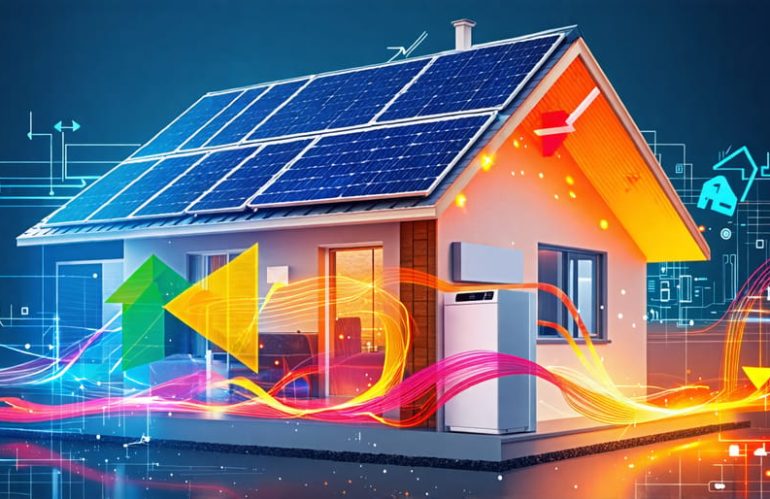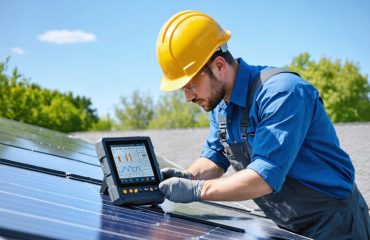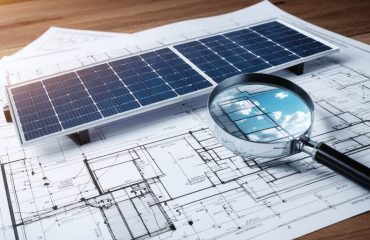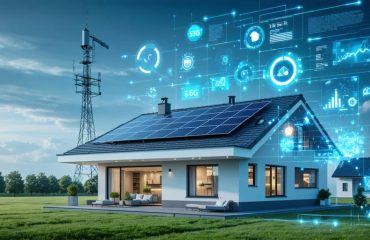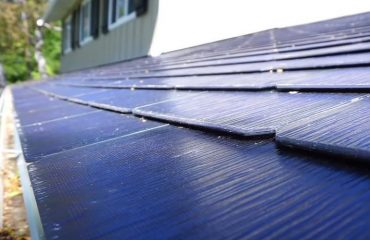Unlock the hidden potential of your home with a residential energy audit – a comprehensive assessment that can save you money, reduce energy waste, and enhance comfort. During an audit, a certified professional systematically analyzes your home’s energy use, identifying inefficiencies and opportunities for improvement. Armed with data-driven insights, you can strategically upgrade insulation, seal air leaks, optimize HVAC systems, and make smart appliance choices. The result? Lower utility bills, a smaller carbon footprint, and a more comfortable, eco-friendly home. Invest in a residential energy audit today and take control of your energy future.
What is a Residential Energy Audit?
DIY vs. Professional Energy Audits
Do-it-yourself energy audits can be a good starting point for homeowners looking to assess their energy usage. These audits typically involve a visual inspection, checking for drafts, and analyzing utility bills. While DIY audits are more affordable and can identify some areas for improvement, they may miss deeper issues that require specialized equipment or expertise to detect.
Professional energy audits provide a more comprehensive assessment of your home’s energy efficiency. Certified auditors use advanced tools like blower doors and infrared cameras to pinpoint air leaks, insulation gaps, and other inefficiencies. They can also provide customized recommendations based on your home’s unique characteristics. Although professional audits come at a cost, they often uncover more significant opportunities for energy savings and can pay for themselves over time through reduced utility bills.
The Energy Audit Process
Pre-Audit Preparation
To prepare for a residential energy audit, gather your utility bills from the past year to help the auditor analyze your energy usage patterns. Make a list of any known issues, such as drafty rooms or inefficient appliances. Ensure the auditor has access to all areas of your home, including the attic, basement, and crawl spaces. Clear away clutter from around your HVAC system, water heater, and other major appliances to facilitate inspection. If you have any specific concerns or questions, note them down to discuss with the auditor during the assessment. By taking these steps, you’ll help the auditor conduct a thorough evaluation and provide more accurate recommendations for improving your home’s energy efficiency.
On-Site Inspection
During an on-site inspection, a residential energy auditor will thoroughly examine your home to identify areas of energy inefficiency. The auditor will assess the insulation levels in your walls, attic, and floors, checking for gaps or inadequate coverage. They will also inspect windows and doors for air leaks, as well as evaluate the condition and efficiency of your heating, ventilation, and air conditioning (HVAC) system. Additionally, the auditor will review your lighting fixtures and appliances to determine their energy consumption.
Using specialized tools like infrared cameras and blower door tests, the auditor can pinpoint hidden air leaks and temperature variations within your home. These tests help create a detailed picture of your home’s overall energy performance. The auditor may also conduct a combustion safety test to ensure that your gas appliances are operating safely and efficiently.
Throughout the inspection, the auditor will take notes and photographs to document their findings. They may ask you questions about your energy usage habits and any concerns you have regarding comfort levels or high energy bills. By gathering this information, the auditor can provide personalized recommendations to improve your home’s energy efficiency, ultimately helping you save money and reduce your environmental impact.
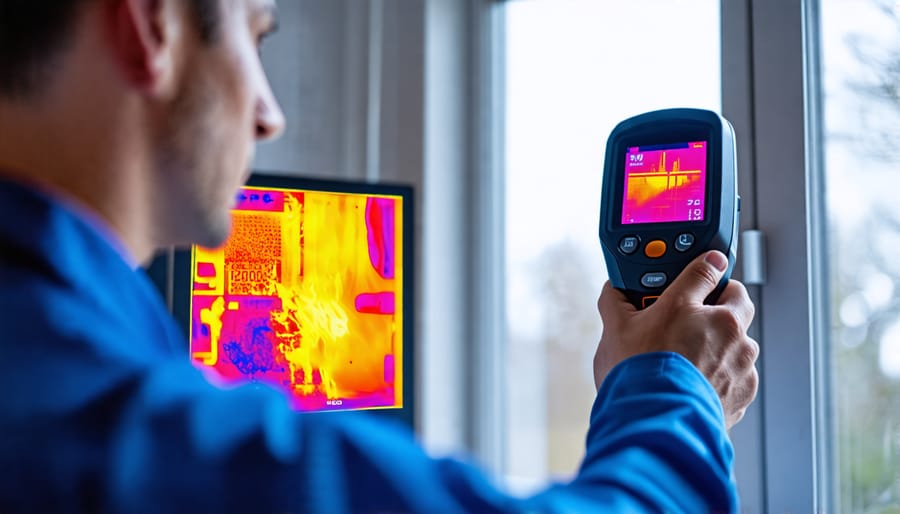
Understanding Your Energy Audit Results
Common Problem Areas
Common problem areas identified during residential energy audits include insufficient insulation in attics, walls, and crawl spaces, leading to heat loss and higher energy bills. Air leaks around windows, doors, and electrical outlets also contribute to energy waste. Inefficient heating and cooling systems, such as older furnaces or air conditioners, can significantly increase energy consumption. Outdated appliances, including refrigerators, dishwashers, and washing machines, often use more energy than newer, energy-efficient models. Incandescent light bulbs and fixtures that lack proper controls or timers can also lead to unnecessary energy usage. By addressing these issues, homeowners can dramatically reduce their energy consumption, lower their utility bills, and create a more comfortable living environment. An energy auditor will provide personalized recommendations based on the specific findings of the audit, helping homeowners prioritize upgrades and improvements for maximum impact on energy efficiency and cost savings.
Energy Efficiency Solutions
A residential energy audit typically suggests several common energy efficiency upgrades to improve home performance. These may include adding insulation to walls, attics, and crawl spaces, sealing air leaks around windows and doors, upgrading to ENERGY STAR certified appliances, installing programmable thermostats, and switching to LED lighting. Auditors may also recommend low-flow water fixtures, smart power strips, and solar panel installations. By implementing these measures, homeowners can significantly reduce their energy consumption, lower utility bills, and create a more comfortable living environment while minimizing their ecological footprint.
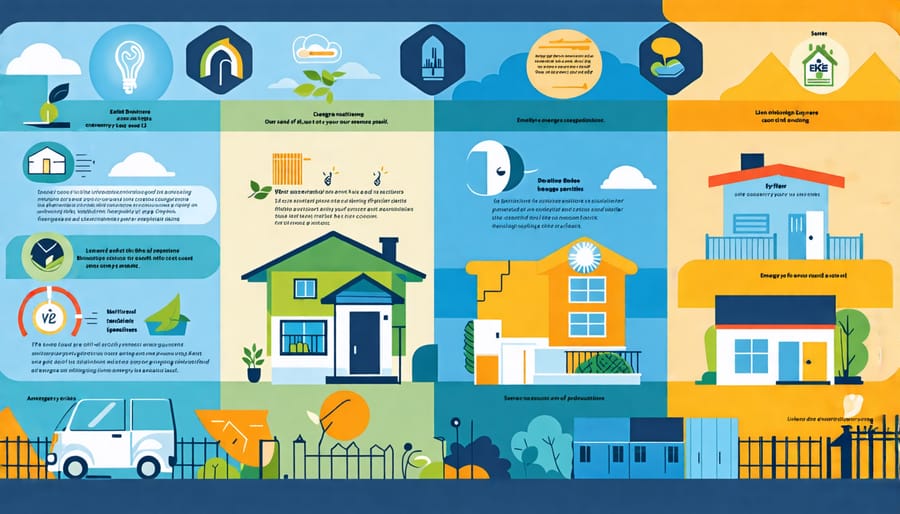
Benefits of Home Energy Audits
Conducting a home energy audit offers numerous benefits that extend far beyond the initial assessment. One of the most significant advantages is the potential for substantial cost savings on your energy bills. By identifying areas of energy inefficiency and implementing the recommended upgrades, you can dramatically reduce energy usage and lower your monthly expenses. Over time, these savings can add up to a considerable amount, making the initial investment in an energy audit well worth it.
In addition to financial benefits, a home energy audit can greatly enhance your overall comfort level. By pinpointing issues such as air leaks, insufficient insulation, or outdated heating and cooling systems, you can take steps to create a more consistent and pleasant indoor environment. This can lead to improved air quality, reduced drafts, and a more stable temperature throughout your home, ensuring that you and your family can enjoy a cozy and inviting living space year-round.
Furthermore, conducting an energy audit and implementing its recommendations is an excellent way to embrace sustainability and minimize your environmental impact. By reducing your energy consumption, you’ll be contributing to the conservation of natural resources and helping to mitigate the effects of climate change. This not only benefits the planet but also sets a positive example for your community and future generations.
Ultimately, the long-term value of a home energy audit lies in its ability to create a more efficient, comfortable, and environmentally-friendly living space while providing significant financial savings. By taking proactive steps to assess and optimize your home’s energy performance, you’ll be making a smart investment in your property, your wallet, and the world around you.
Conclusion
Residential energy audits offer homeowners a powerful tool to reduce their environmental impact and save money on utility bills. By identifying areas of energy waste and recommending targeted improvements, audits empower you to make informed decisions about your home’s efficiency. Whether you’re driven by a desire to live more sustainably or simply want to cut costs, an energy audit is a smart investment in your home and future. Don’t wait to start enjoying the benefits – contact a certified energy auditor today to schedule your comprehensive home assessment and take the first step toward a more efficient, eco-friendly residence.

